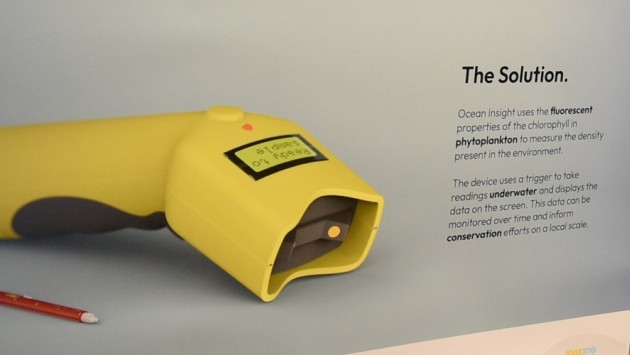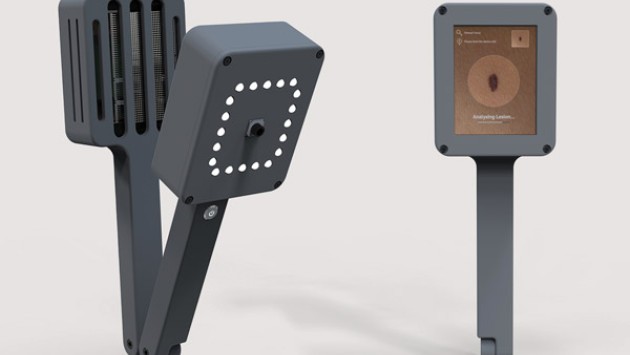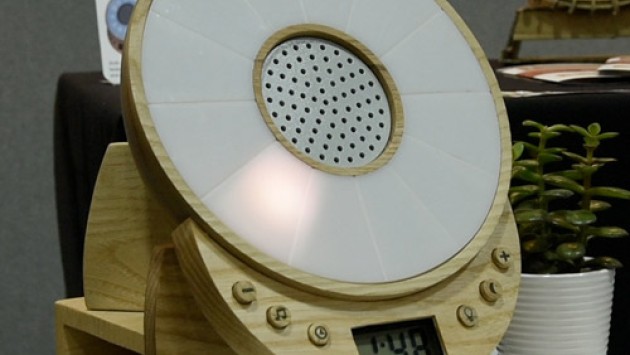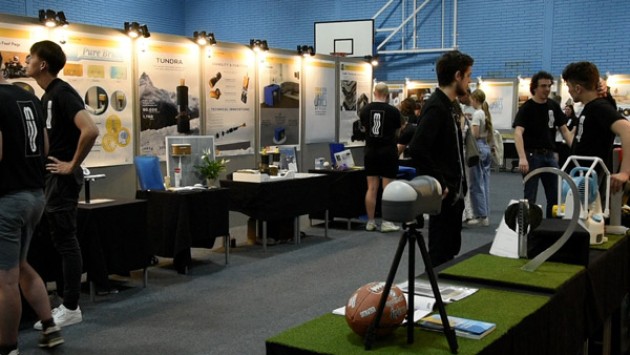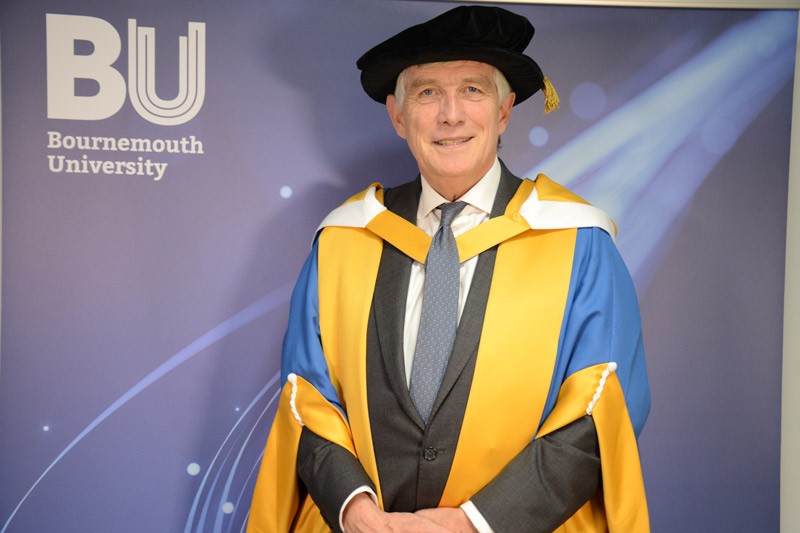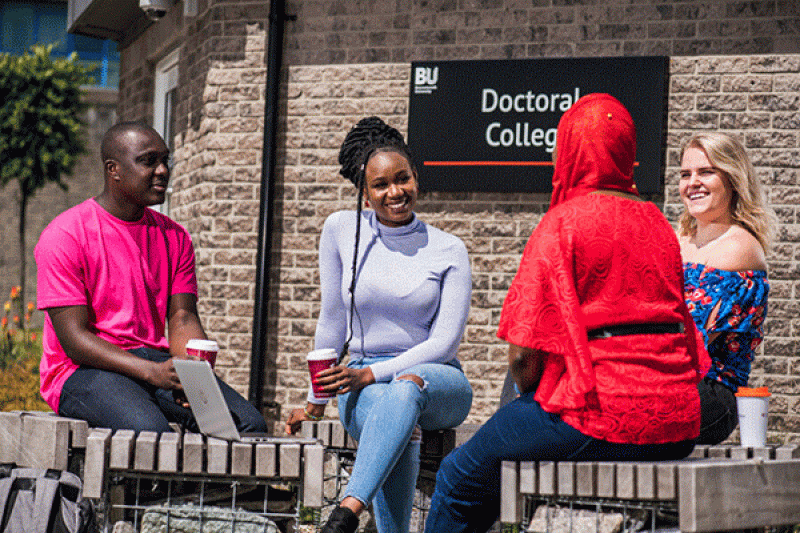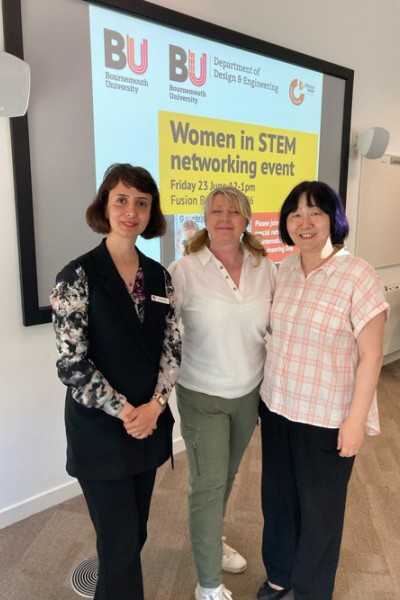
As part of International Women in Engineering Day BU’s Department of Design & Engineering organised a Women in STEM networking event to kick off their annual Festival of Design and Engineering (FODE).
The Festival of Design and Engineering is an annual showcase of final year students’ work, which attracts members of the public and representatives from local industry to network and to learn about the projects the students have been working on.
International Women in Engineering Day took place on Friday 23 June and has traditionally been part of a campaign to help raise the profile of career opportunities that are available to girls and women in this industry. Women in STEM (Science, technology, engineering and maths) also encourages women and girls to enter these fields as part of their education.
Dr Roya Haratian, Principal Academic in Electronic Science and Engineering who helped organise the Women in STEM networking event said: “International Women in Engineering Day is the perfect opportunity to hold our networking event. The students are able to publicly display their products and designs here at the festival as well as meet and network with visitors from local businesses. These projects have taken students many months and years to research and develop during their courses. There are a whole range of exciting new inventions and designs that have both a practical and environmental use for society.”
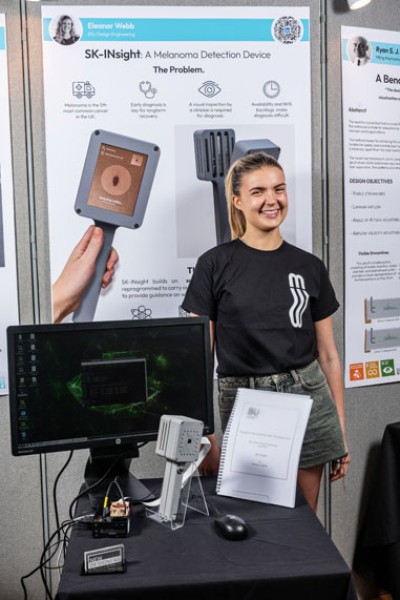
A handheld device to speed up diagnosis of skin cancer, an instrument to improve monitoring of water quality in rivers and oceans, and a swimming aid for the visually impaired were some of the students’ creations on display.
Design Engineering student Eleanor Webb’s product, SK Insight, uses machine learning technology to carry out a fast assessment of skin lesions. It can then provide advice on when to seek medical attention. “One in thirty-six men and one in forty-seven women will be diagnosed with melanoma skin cancer in the UK. Early diagnosis is key”, explained Eleanor. “SK-Insight uses twenty LED lights to capture high quality images of someone’s skin lesions. These are then compared to a database of over thirty thousand lesions to produce a predicted diagnosis.”
BA (Hons) Product Design student, Sophie Chaplin-Perkins who was one of the students displaying her product said: “I’m here to showcase the product I have designed which is a Sleep Aid and alarm clock designed to help shift workers regulate their body clock, promote better health and wellbeing and encourage quality sleep.”
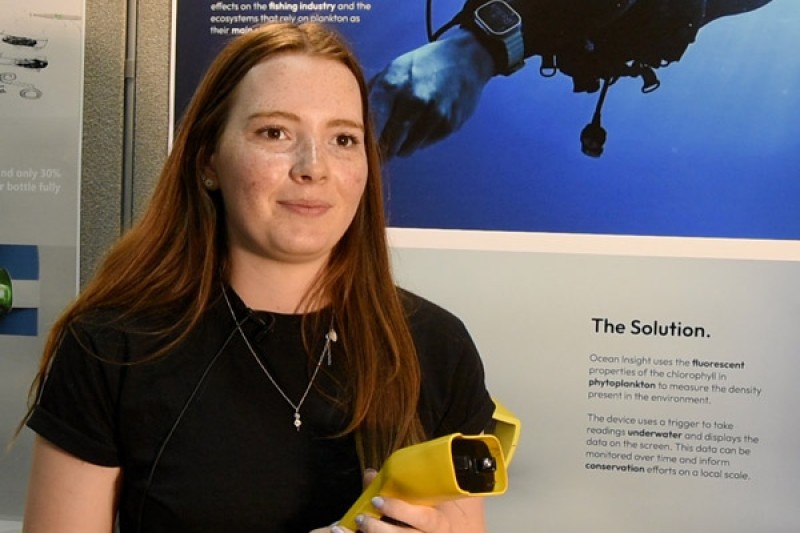
BSc (Hons) Product Design student, Millie Hanlon who has designed a handheld device that can measure populations of phytoplankton said: "It's so important to measure the levels of phytoplankton underwater because it's the base of the food chain. Phytoplankton creates fifty percent of the oxygen we breathe, which is vital for the health of the planet.”
Female students form a growing number of girls and women who are taking up STEM-related courses in higher education in the UK. “I think the industry can really benefit from a women’s perspective, so I think it’s important to make that change and I’m happy to be the person to do that.” Millie continued.
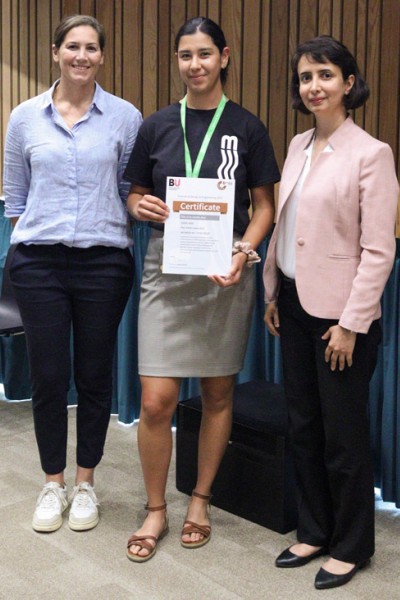
BSc (Hon) Design Engineering student Sirin Arif, who won BU's Women in STEM award for her support during the Athena Swan process and her dedicated work as a PAl Leader said: “Studying engineering has enabled me to think more creatively in my everyday life. Having such background makes me feel independent and able to solve real life problems within the industry and many other sectors. Being an engineer for me means being able to say, “I did that!” and “be proud of it!”
Dr Roya Haratian has been instrumental in achieving BU’s Athena Swan Bronze accreditation for the Department of Design and Engineering in 2021, in recognition of the Department’s commitment to working towards gender equality. Not only does this benefit businesses locally by attracting more people into the industry, but has wider benefits for the nation’s economy, as Roya explains: “By attracting more women and girls into fields that have traditionally been taken by men in the past, we are increasing this task force and generating new ideas. It has been proved across worldwide nations, including India and China, that STEM graduates attribute to the growth of a nation’s economy, so it’s vital that we encourage as many girls and women to consider studying science and technology as much as possible”.
For more information about BU’s courses in Design and Engineering and BSc (Hons) Product Design and BA (Hons) Product Design please visit the BU website.
